Q&A: Zirbel frustrated by USADA treatment
Could leave the door open for pro cycling return
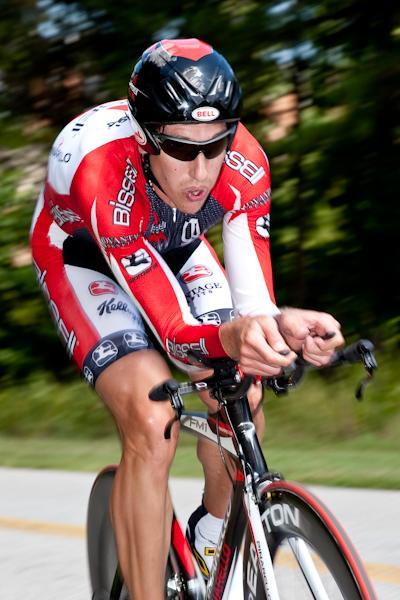
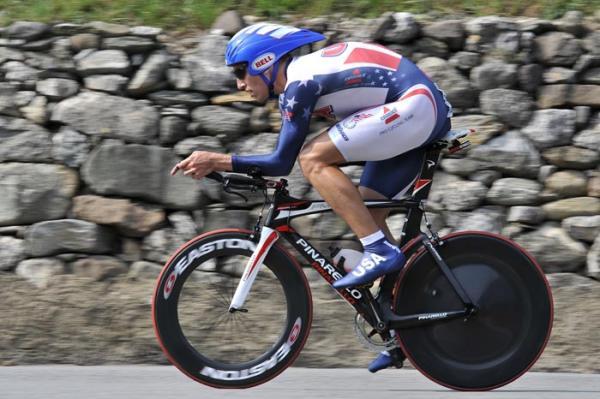
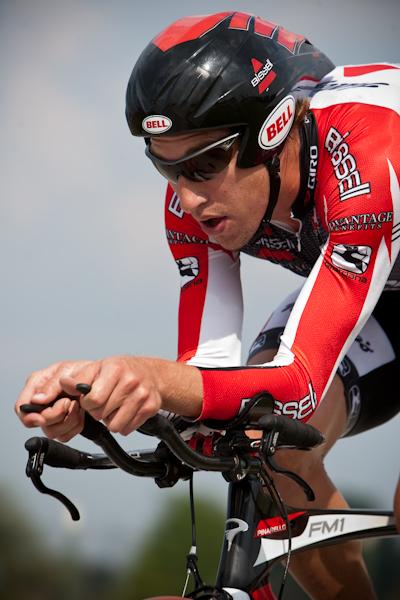
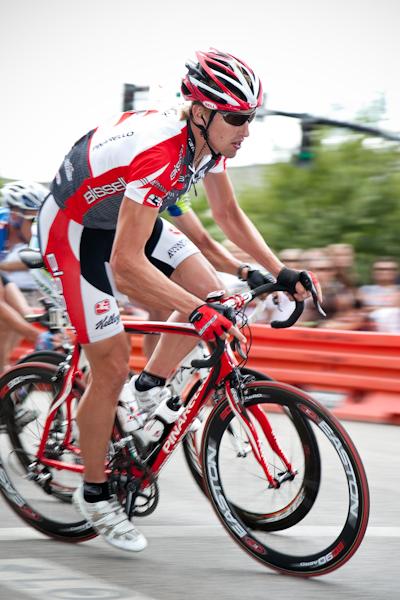
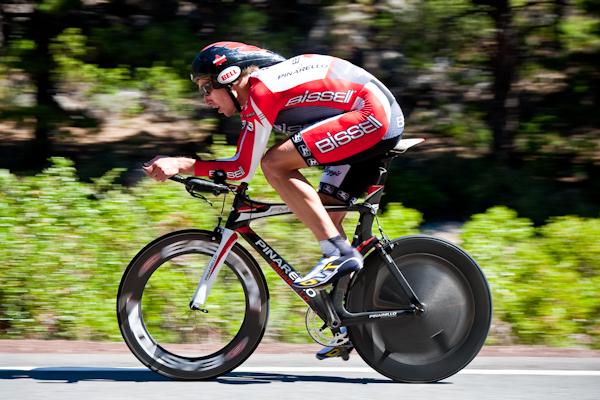
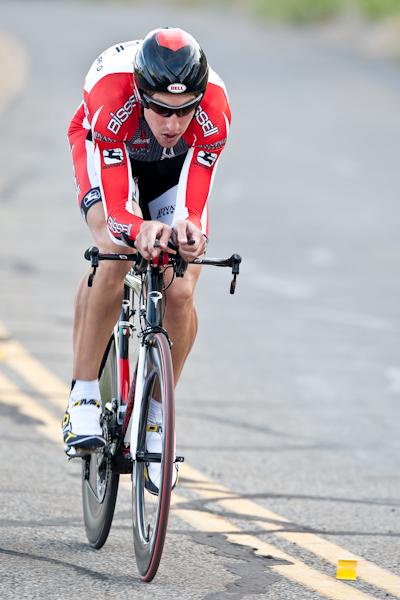
Tom Zirbel decided to retire from professional cycling last week after receiving a two-year suspension from the United States Anti-Doping Agency (USADA). The time trial specialist tested positive for Dehydroepiandrosterone (DHEA) from a urine sample taken by USADA following the USPro Championships on August 29, 2009.
Zirbel’s A and B samples were tested at the World Anti-Doping Agency accredited Sports Medicine Research and Testing Laboratory (SMRTL) at the University of Utah and both returned positive for the steroid. Zirbel competed for the Bissell Pro Cycling Team from 2007-2009 but accepted a contract to compete with the ProTour team Garmin-Transitions in 2010. That contract was terminated last November upon notice of his positive A sample.
He was recognised as a time trial specialist for his top 10 performances at the Tour of California’s individual time trial along with two second place finishes in the US Pro Time Trial Championships in 2008 and 2009. He placed fourth at the International Cycling Union (UCI) Time Trial World Championship held in Mendrisio, Switzerland last year.
Zirbel maintains that he did not knowingly ingest DHEA and has spent the previous four months working with a team of chemistry specialists to determine why his urine produced elevated levels of DHEA. He spoke with Cyclingnews about his recent quest to prove his innocence, expressed his frustration at the lack of athlete-rights and questioned a possible return to professional racing in 2012.
Cyclingnews: USADA has given you a two-year suspension, is your career as a cyclist completely finished?
Tom Zirbel: I have one or two weeks to get back to them if I want to take it to a hearing or not. I haven’t responded to that yet. I have to sign the forms saying whether or not I accept their decision. I will wait another week. I think at this point I will accept the sanction.
CN: Leaving the door open for a cycling career in the future means that you must continue to participate in the World Anti-Doping Agency’s Whereabouts program?
The latest race content, interviews, features, reviews and expert buying guides, direct to your inbox!
TZ: Yes, that makes sense to me. They don’t want someone doping up, getting strong and then coming back to win the Tour de France or something. I will have to sign some forms and follow up with it. I can’t just say that I want to start racing again in two years. I have to continue to fill out the forms and follow up. I don’t know if I will continue to fill out the whereabouts forms, so that they can test me at any time. But, that would give me the possibility to come back.
I’m pretty volatile right now and sour about the way USADA handled everything. I may just say, ‘f**k it’ on that too. That would make it so that I can’t come back, so that I have to move on. That might end up being easier for me. But everyone I talk to thinks I should leave that option open for later.
CN: Do you think your supplements were contaminated?
TZ: Something was contaminated. The definition of supplement is pretty big once you start looking at the labels on everything you eat. Unless I’m using a conspiracy theory, which I’m not, it had to be something that I ate without my knowing. That is the only explanation I have, unless the test was flawed.
CN: You had a team of people working with you to find out how this positive test happened, what were they testing?
TZ: We were doing testing on all sorts of different things that I was taking or eating a few days before [the USPro Time Trial Championships]. As best as we could, we tried to piece together everything that I did during the days leading up. There was some testing going on and developing theories. It was so that I could hopefully figure it out. It’s a tall order at this point because it’s been so long. Just to get my hands on the exact stuff that I was taking has been difficult. I was even looking into anything that is vitamin fortified, like cereals, anything like that. It’s overwhelming to think of all the possibilities.
CN: Who is helping you conduct these studies?
TZ: Andy Phillips has been my main man on this front. He’s an organic chemistry professor at the University of Colorado in Boulder. I met him when I went to that school a few years ago and he used to race bikes. We stayed in touch over the years. He has developed a lot of the theories and has been doing all of the testing. He is very knowledgeable with these things and his wife is an analytical chemist so to have those brains on my side has been great.
CN: How much longer will you continue to conduct these tests?
TZ: Not much longer, I sent in more stuff for testing and if nothing comes of that then I might do one further test just to check into looking at things a different way. If that turns up inconclusive as well then I might just scrap it because it’s taking time and resources. I’ll continue to try a little bit but I should know within the next month or so.
CN: Did you present your theories and findings to USADA before they gave you a two-year suspension?
TZ: From the get go I wanted to have open communication with USADA on what’s going on. I was hoping that we could almost bounce ideas off of each other and obviously it hasn’t happened that way. They’ve treated me like a criminal. I guess that is what they needed to do.
Open communication is the furthest from what was going on. I couldn’t even get them on the phone to talk until I got a lawyer. They wouldn’t return my calls until five days later and it was a pointless conversation. They’d be talking about coming to a resolution which meant me admitting guilt. It’s like, ‘God, open your eyes,’ because this isn’t the first time they’ve dealt with this. Maybe I’m bias and I know they have to treat cases uniformly, but they’re hurting themselves by treating me and other athletes they way they do. I’m done with it.
CN: If you find conclusive evidence will you take this back to USADA and ask for a hearing?
TZ: I don’t think so. If we find something conclusive then I may just present the findings to USADA. I’m tired of playing in the hands of USADA. I’ll just tell them what I found and we will try to make sure that it never happens again. That is basically my goal at this point.
CN: Has this made you think back to other athletes that have tested positive in the past?
TZ: Yes, it does. This is not the first case like this. Other cases before me have proven that a substance was taken without the athlete knowing. But even beyond that, guilty or not guilty, the way that the system is set up, the money, time and energy spent, the emotional capital as well and the toll it takes on relationships sucks for everyone involved. That was why I wanted to cut my losses. I don’t want this to be dragged out to tens of thousands of dollars later. Every day was hard with no guarantee of a happy ending. I don’t really see any happy ending anyway. Cycling was never going to be the way that it was for me, no matter if I prove this or that, there was always going to be an asterisk next to my name. I found that to be unacceptable.
CN: How much did this process cost you in terms of dollars, time and energy?
TZ: It’s pretty difficult to try to convince someone that you are innocent, especially someone that doesn’t know you. I found it really hard and I felt guilty even just saying the words ‘I’m not guilty’. I wouldn’t wish this on anyone as far as emotional expenditure goes.
As for the money, I’ve been very fortunate to have a lot of people who have taken up my costs. I’ve spent some money but nothing compared to what it could have been. If I were to keep along this path it would have escalated beyond my control. That was part of the reason but not the biggest reason.
It was a small price to pay to clear my name and return to my career like I wanted. But I started asking different questions about what I actually do want for my future. I need to step away for a while.
CN: You mentioned that you would like to donate your time to making sure this doesn’t happen to other athletes, how will you do that?
TZ: I would like to continue to try and figure out where this positive test came from, that would be big. But it’s kind of out of my control because I only have so many resources to put to that. Hopefully once the bitter taste leaves I will get involved again. I want to try to put some minds together and lobby for change to improve this system a bit.
I don’t think it’s unreasonable that there should be some separations. I don’t think that [Ricardo] Ricco and I should be getting the same sanctions. I think there are levels of cheating and that is one thing that I would like to see change. Also the rights of the riders, this happens in other sports as well. It’s tough because we all want to clean up the sport and have a zero tolerance but there has to be more rights for the riders.
CN: Are you applying for jobs in a new career and what would you like to do now?
TZ: I thought about using my chemistry degree to improve sports testing and maybe try to help to come up with better detection methods, in the future. For now I thought about teaching math and sciences at the high school level. I’m trying to get my foot in the door at the school district and I’m applying to different chemistry labs.
I worked in a chemistry lab for a couple of years before I went a grad school. I thought I could be a bike racer and do grad school at the same time and that was not the case. I had to pick one.
CN: Can you walk away from your cycling career without feeling bitter?
TZ: Yes, but it will take some time. I have taken so much from cycling, all the memories and experiences. It has reconnected me with a lot of my family. I have a huge family around the country. My dad has nine brothers and sisters and my mom has 10 so I have a very big family and cycling has brought me closer to them. I have reconnected with old friends and have lots of memories with old teammates.
I have a lot of positive experiences from cycling. I didn’t expect to get those kinds of experiences when I decided to quit grad school to become a pro cyclist. I can’t be too bitter because I’ve gotten so much from this sport. I got to sit on the hot seat for three hours at a World Championships, so that is pretty special. I really think that these are the things I will remember in years to come.

Kirsten Frattini is the Deputy Editor of Cyclingnews, overseeing the global racing content plan.
Kirsten has a background in Kinesiology and Health Science. She has been involved in cycling from the community and grassroots level to professional cycling's biggest races, reporting on the WorldTour, Spring Classics, Tours de France, World Championships and Olympic Games.
She began her sports journalism career with Cyclingnews as a North American Correspondent in 2006. In 2018, Kirsten became Women's Editor – overseeing the content strategy, race coverage and growth of women's professional cycling – before becoming Deputy Editor in 2023.